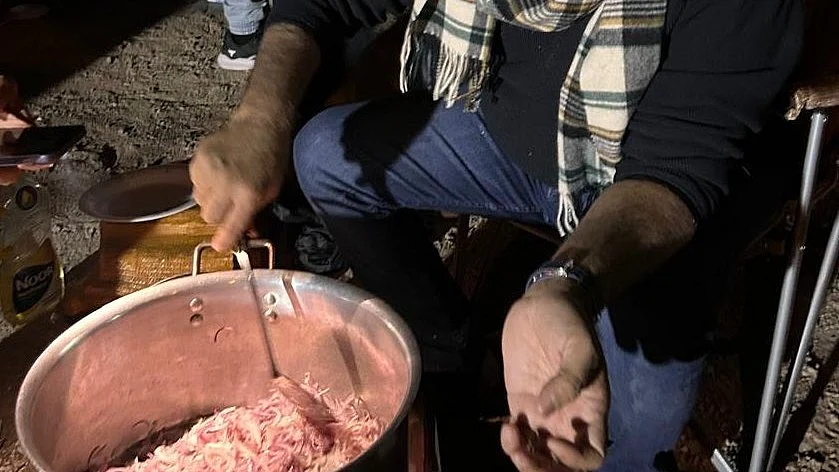AIMIM leader throws ‘biryani party’ amid meat ban, with veg option for commissioner
Chhatrapati Sambhajinagar instituted a municipal ban on sale of meat on 15 and 20 August, days with a Hindu and a Jain festival each

AIMIM leader Imtiaz Jaleel hosted a biryani party at his home on 15 August, Friday, in a protest against the Chhatrapati Sambhajinagar Municipal Corporation's directive to shutter meat shops during certain festivals — including, apparently, Independence Day.
He also criticised chief minister Devendra Fadnavis, questioning why the CM hadn't instructed the municipal commissioner to revoke the order forbidding meat sales.
Both Independence Day and Gokul Ashtami (or Krishna Jamashtami), a Hindu festival celebrating Lord Krishna’s birth, are being observed on Friday.
On 12 August, Tuesday, the city's civic authorities had announced that slaughterhouses and stores selling meat within the city would be closed on two dates: 15 August and 20 August.
According to their directive, these establishments were required to shut on 15 August for Gokul Ashtami, and again on 20 August, when Jains mark Paryushan Parva, a major festival for the community observed with fasting and prayer.
Jaleel, who has previously served as an MP and leads the All India Majlis-e-Ittehadul Muslimeen (AIMIM), arranged the gathering at his residence to register his disapproval of the policy, serving both chicken biryani as well as a vegetarian dish for guests. Speaking to with journalists, he said, "If the municipal commissioner comes and asks for vegetarian food, then I will offer it to him. But the government should not tell us what we should eat and what we should not."
He continued, "Such things should be stopped. This unfortunate decision (of meat ban) was taken on account of Independence Day."
Jaleel directed further criticism toward Fadnavis, noting that instructing the commissioner to retract the order would have resolved the controversy. He remarked, "They say we can eat (meat) but it will not be made available in the market. What is the government trying to gain by issuing such orders?"
Even former allies of the Mahayuti government such as Ajit Pawar have been up in arms this year in Maharashtra over a slew of localised 'meat ban' orders.
When questioned about the ban's connection to Gokul Ashtami, he responded, "Is this festival being celebrated in some districts only? Hindus across the state are celebrating it. Had the government adopted a (statewide) policy in this regard, then we would have respected it."
He also commented, "There are few over-enthusiastic municipal commissioners who issued these orders to make the government happy... Muslims have only two festivals (Ramzan and Bakri Eid). Will the government also shut the liquor shops on these two festivals of the Muslim community?"
Similar bans issued by municipal corporations in Nagpur, Nashik and Malegaon have sparked controversy and brought up questions regarding individual freedoms.
Opposition groups have condemned the ban — with the local Congress today having organised a 'murgi chhoro' protest in the Kalyan-Dombivli area of Thane and NCP(SP)'s Jitendra Awhad threatened a "mutton party" — while the BJP rejoinder was that the practice of shutting abattoirs on Independence Day dates back to 1988 when Sharad Pawar was chief minister, suggesting that criticisms be directed at him as well.
To that last, Awhad retorted (speaking to reporters at a hotel in Kalyan in a gathering where the promised meat was served), "I have a copy of the government resolution of 1987, which everyone has quoted in the last few days. One should read it and tell me where it is written about the ban on the sale of meat on Independence Day. It was a suggestion and not a decision of the then government."
No evidence of Pawar or any other chief minister of Maharashtra insisting on shutting of shops selling meat has been found on record, however.
Fadnavis last addressed the matter on 13 August, Wednesday, stating that the state administration was not interested in policing people’s dietary choices and described the debate around the closure of abattoirs as an “unnecessary” controversy.
With PTI inputs
Follow us on: Facebook, Twitter, Google News, Instagram
Join our official telegram channel (@nationalherald) and stay updated with the latest headlines
